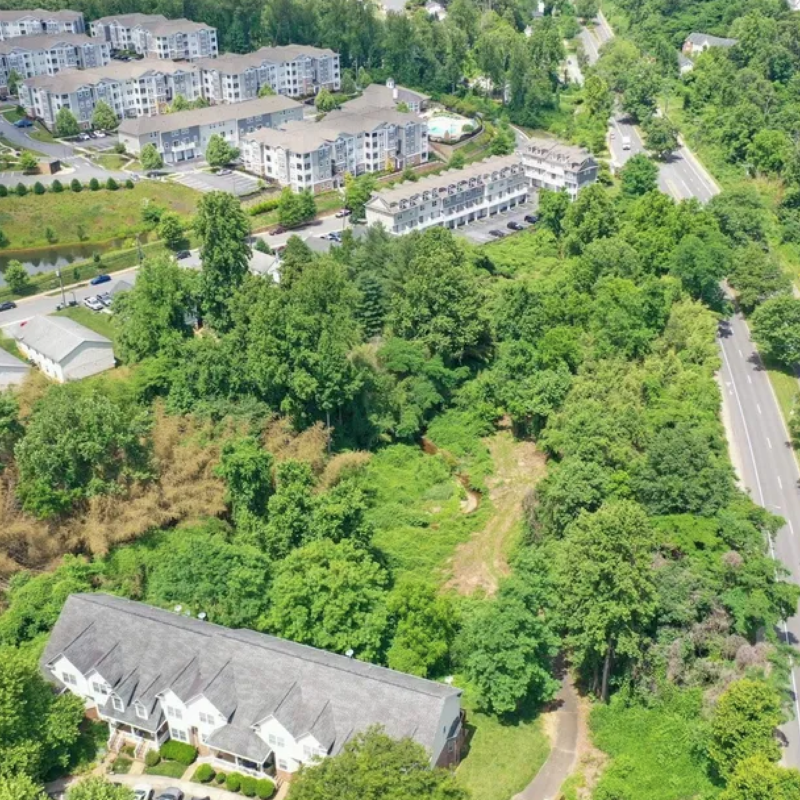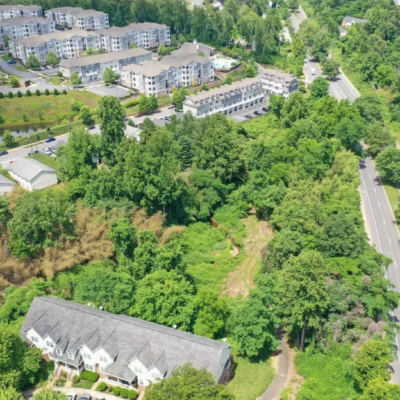For the past three months, the Charlottesville Redevelopment and Housing Authority (CRHA) has been trying to fill a new position, director of redevelopment. After running ads regionally and in national publications like The Washington Post, the position is still unfilled.
As the search continues, the city and CRHA face what Noah Schwartz, executive director of CRHA, has called “an enormous task”: redeveloping the city’s public housing stock into mixed-income, mixed-use communities built to environmentally friendly standards. The redevelopment director would serve as the lead person in the master planning and development processes.
 Noah Schwartz is still searching for the right person who will head up mixed-income redevelopment of the city’s public housing. |
“They’ll be the staff person who’s charged with the day-to-day operations of those activities,” he said in a November interview. “For example, I assume they would staff the redevelopment committee, organize that whole process.”
The position pays in the $50,000s —an amount that seems low, though Schwartz notes that CRHA is a small housing authority. Funding for the position will come out of its general budget.
“Certainly in the next month, we’d like to have it filled,” he says. “Whether they start that quickly, I don’t know.”
Given the tasks of radically redeveloping the city’s public housing stock, finding models nationally for mixed-income projects and writing grant proposals for Charlottesville’s ambitious public-housing vision, the future director will certainly play a key role. He or she will also likely face a certain amount of skepticism from the community, especially in light of its past forays into redevelopment, specifically the destruction of Vinegar Hill and the construction of Westhaven, the city’s oldest cache of public housing.
“Westhaven at the time, in the ’60s, was a vast improvement for a lot of those folks,” Jason Halbert, the vice-chair of the CRHA Board of Commissioners, said in November. “And they remarked as such. For some people, it was a tragedy to see the African-American community of VH destroyed. It could have been handled much better, obviously.
 Holly Edwards, who had her first meeting Monday as city councilor, said residents must have choices in the redevelopment process. |
“We’re hoping that through really intense focus on the process of redevelopment, through master planning, through community outreach and education and communication, that we can avoid those problems of the past and do this in a way that will benefit everyone. So we’re trying to hire a redevelopment director to help us manage that process.”
The process is already beginning. Schwartz says that CRHA has held four community meetings, in which residents raised questions about the timeline for the project, the effect it will have on resident services and if for-profit developers that CRHA could potentially partner with will really be looking out for residents.
But relocation is the most immediate question. What happens to residents when the current housing comes down?
“It’s really a bit out there, but what I was able to respond with is what other communities have done,” says Schwartz. “If you look at Richmond, they’ve offered folks opportunities to move into vacant units they have at other housing authority properties. They may issue temporary vouchers. There’s a number of different ways that it can be handled, so we’ll have to look at what fits our community best, and what our residents want to do and what we’re capable of doing.”
Transitioning its housing stock is bound to be a tightrope walk for CRHA. Halbert said that many people are suspicious of the process, “and rightly so.” But he pointed to the benefits of change. Through energy-efficient and green design, Halbert said, the new stock of housing would mean lower utility bills for residents and CRHA, on which the authority spends about 15 to 20 percent of its budget.
But does the plan have the potential to fall back into the old ways of Urban Renewal? On election night, newly elected City Councilor Holly Edwards said the city must be careful that it doesn’t.
“We have to make sure we learn lessons from those old ways,” she said minutes after hearing the news of her victory. “We don’t want to call it ‘mixed-income’ and it’s really gentrification. We don’t want to call it ‘diversity,’ but really, it’s urban renewal.”
C-VILLE welcomes news tips from readers. Send them to news@c-ville.com.




